Opening remarks
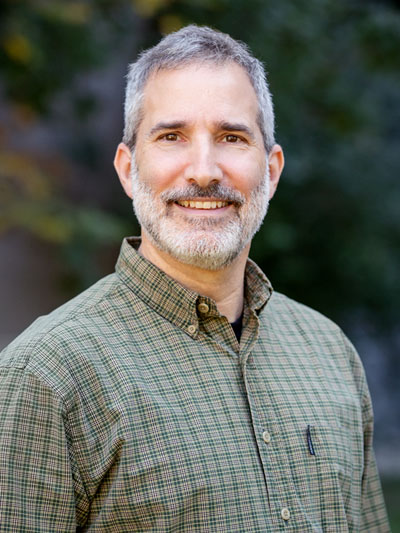
Dr. Adam Davis
Dr. Adam Davis serves as Professor and Head in the Department of Crop Sciences at the University of Illinois at Urbana-Champaign. Prior to beginning this position in September 2018, Adam worked for 14 years as a Research Ecologist with the USDA-ARS Global Change and Photosynthesis Research Unit, embedded within Crop Sciences on the UIUC campus. He received a B.A. in Biology from Yale University, an M.A.T. in Secondary Science Education from Brown University, an M.S. in Ecology and Environmental Sciences from University of Maine, and a Ph.D. in Crop Production and Physiology (Weed Science) from Iowa State University. His goals as Head include increasing undergraduate student enrollment through building long-term relationships with middle and high school STEM programs in Illinois and beyond, broadening and strengthening the stakeholder network served by the department, and deepening coordination of research activities to address grand challenges in agriculture.

Dr. Jason Rauscher
Dr. Jason Rauscher is R&D Academic Relations Lead of Corteva Agriscience.
Jason received a BA in Biology from Carleton College, followed by a Ph.D. in Plant Evolutionary Genetics from Washington University in St. Louis, and postdoctoral training at Cornell University. His career in research and education has included work in Colombia as a Fulbright Scholar and NSF International Research Fellow, and as an Assistant Professor and Director of the Molecular Ecology and Evolution Group at the University of Puerto Rico. In his current role at Corteva Agriscience, Jason engages with the scientific community through management of programs such as the Corteva Symposia Series, the New Frontiers in Applied Science Conference Series, and the Corteva Internship Program.
Keynote speakers

Professor Lee Hickey
Professor Lee Hickey is a plant breeder and crop geneticist within the Queensland Alliance for Agriculture and Food Innovation at The University of Queensland, Australia. He leads a diverse research team that specialises in plant breeding innovation to support development of more productive food crops like wheat, barley, mungbean and chickpea. This includes understanding the genetics of key traits like drought adaptation and disease resistance, plus the development of novel technologies to assist plant breeders. He has a strong interest in the integration of breeding technologies, such as the rapid generation advance technology ‘speed breeding’ with genomic selection and genome editing. His advice for speed breeding crops is sought internationally and the technology is now adopted by plant breeding programs worldwide, which is fast-tracking development of improved crop varieties for farmers. His research outcomes have featured in 87 refereed publications, including articles in high profile journals Nature Plants, Nature Protocols and Nature Biotechnology. Lee is a prolific science communicator and his research outcomes have appeared in mainstream media such as BBC World News, National Geographic, and the New York Times. He is passionate about training the next generation of plant breeders and currently mentors 19 PhD students, while 14 of his previous graduates now work for leading plant breeding companies and high-profile research institutes around the globe.

Julie Borlaug
For 21 years, Julie Borlaug has successfully worked in international agricultural development, agricultural communications, and external and corporate relations. As the granddaughter of Dr. Norman Borlaug, she works to champion his legacy and lend a voice to his desire to see more successful collaborative partnerships across sectors and scientific disciplines to bring better and faster innovation to end hunger. She is the President of Borlaug Consulting and the Borlaug Foundation. Ms. Borlaug serves on several boards and advisory councils, including the Council of Advisory for World Food Prize, Advisor to CIMMYT, Global Farmer Network advisory board, Champion’s Council Network for the UN Food Systems Summit, Board of Trustee for Agricultural Science & Technology (CAST,) U.S. National Food Systems Dialogues, the Texas A&M Agriculture Vice Chancellor’s advisory board, Counterpart, Thought for Food Challenge Board and the Global Coalition for Attracting and Retaining Youth in Agriculture. Ms. Borlaug received a B.A. from Texas A&M in international studies and political science and an M.B.A. from the University of Dallas.
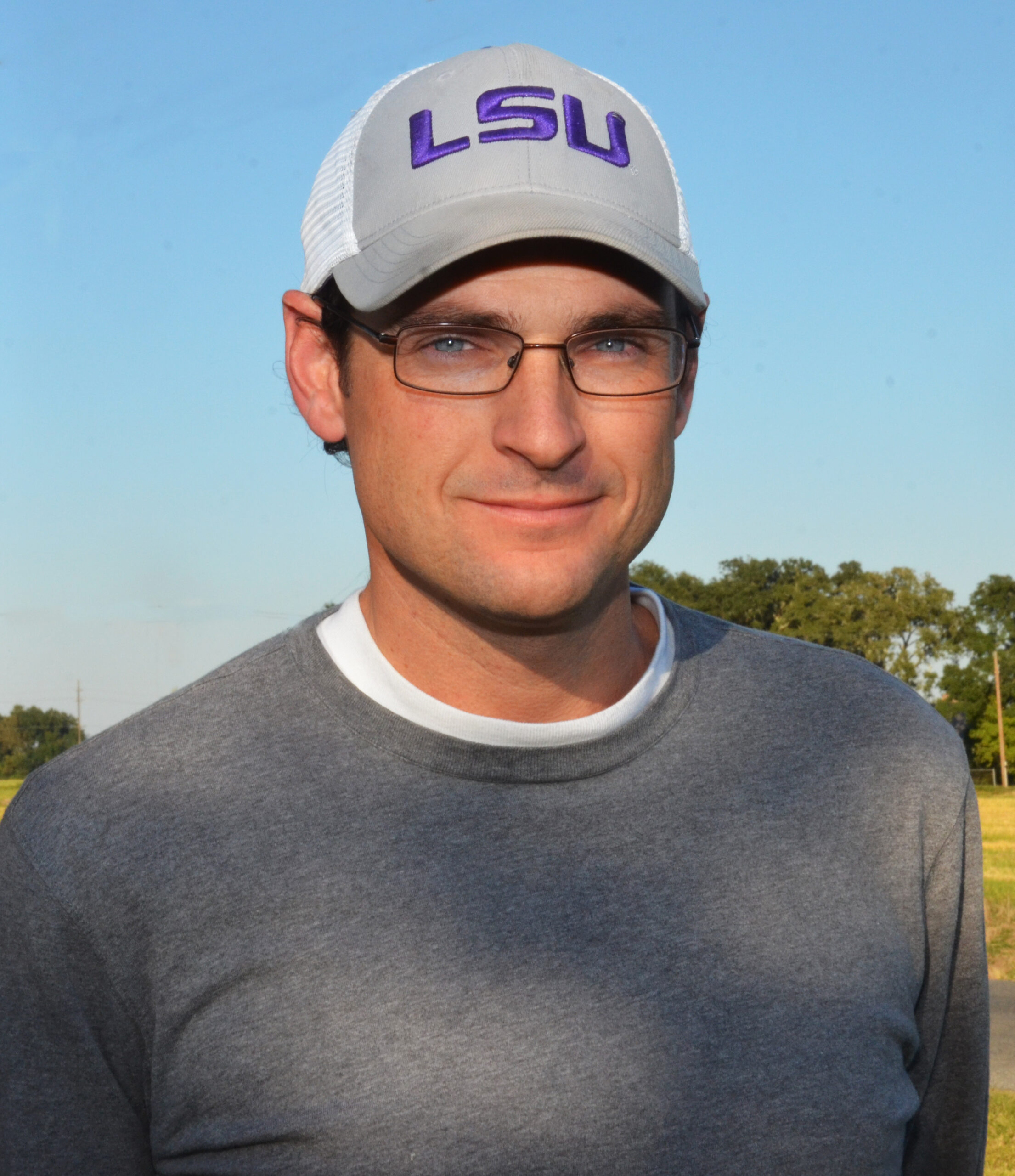
Dr. Adam Famoso
Adam Famoso is an Associate Professor at the Louisiana State University AgCenter in Crowley, Louisiana. He joined LSU in 2015 and his research is focused on applied breeding and rice variety development. Working with an interdisciplinary team, a key research focus of the breeding program is exploring, optimizing, and implementing new breeding strategies within the logistical and budgetary context of an applied breeding program. Prior to moving to LSU, he worked at DuPont Pioneer from 2010-2015 focused on hybrid rice product development. He completed his PhD in 2010 in Plant Breeding and Genetics from Cornell University.
Invited speakers
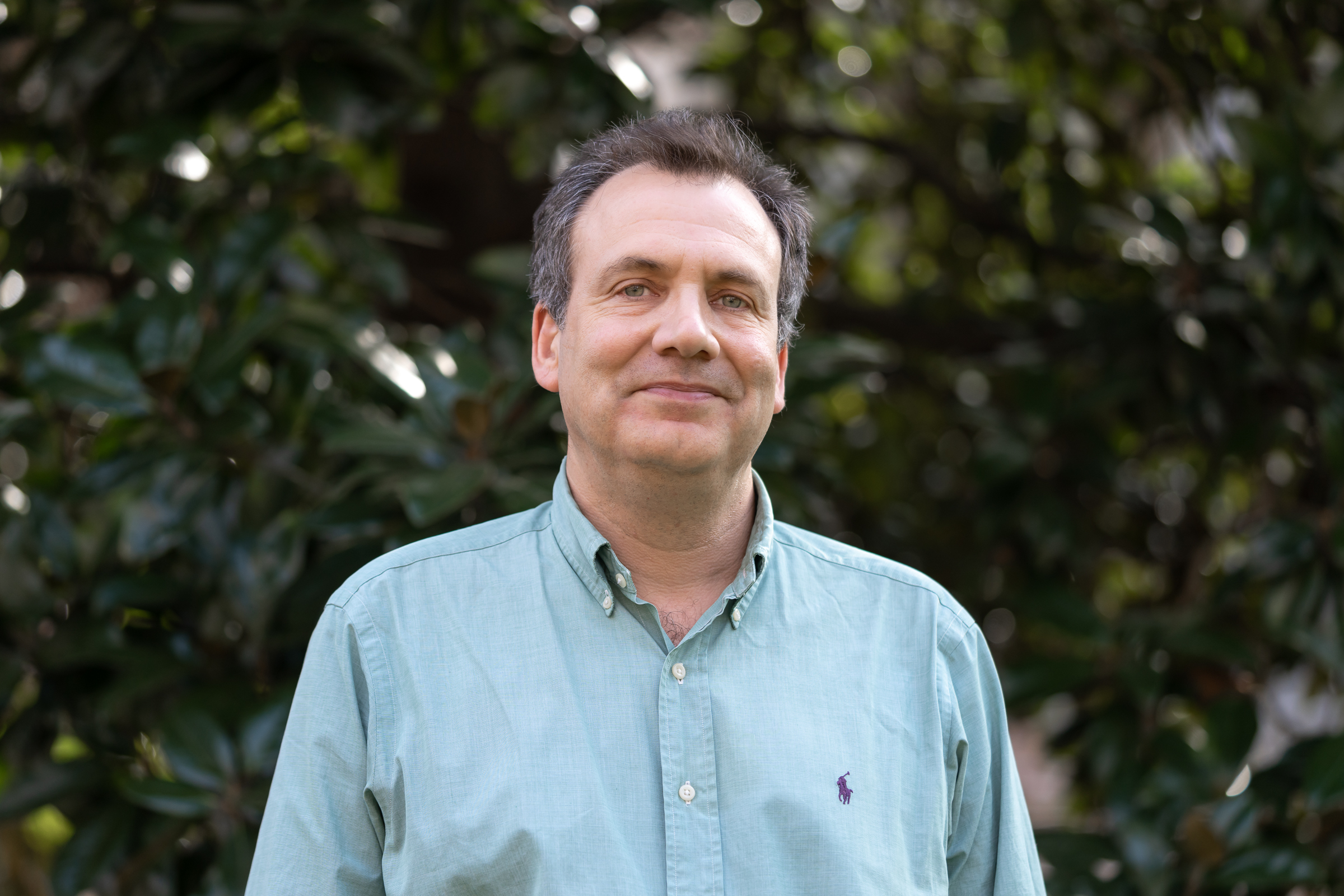
Dr. Peter Balint-Kurti
Peter Balint-Kurti got his PhD at the Sainsbury Laboratory in Norwich UK in 1994. His subsequent career took him to National Institutes of Health in Bethesda MD, the Boyce Thompson Institute in Ithaca NY and two biotechnology companies in Oakland CA. Since 2003 he has been a USDA-ARS maize geneticist at North Carolina State University, working on the genetics of disease resistance in maize. Dr. Balint-Kurti has published extensively on the genetic bases of multiple disease resistance and the genetic and molecular control of the plant hypersensitive defense response. He is a senior editor for the journals The Plant Journal and Molecular Plant Pathology and is a fellow of the American Phytopathological Society.
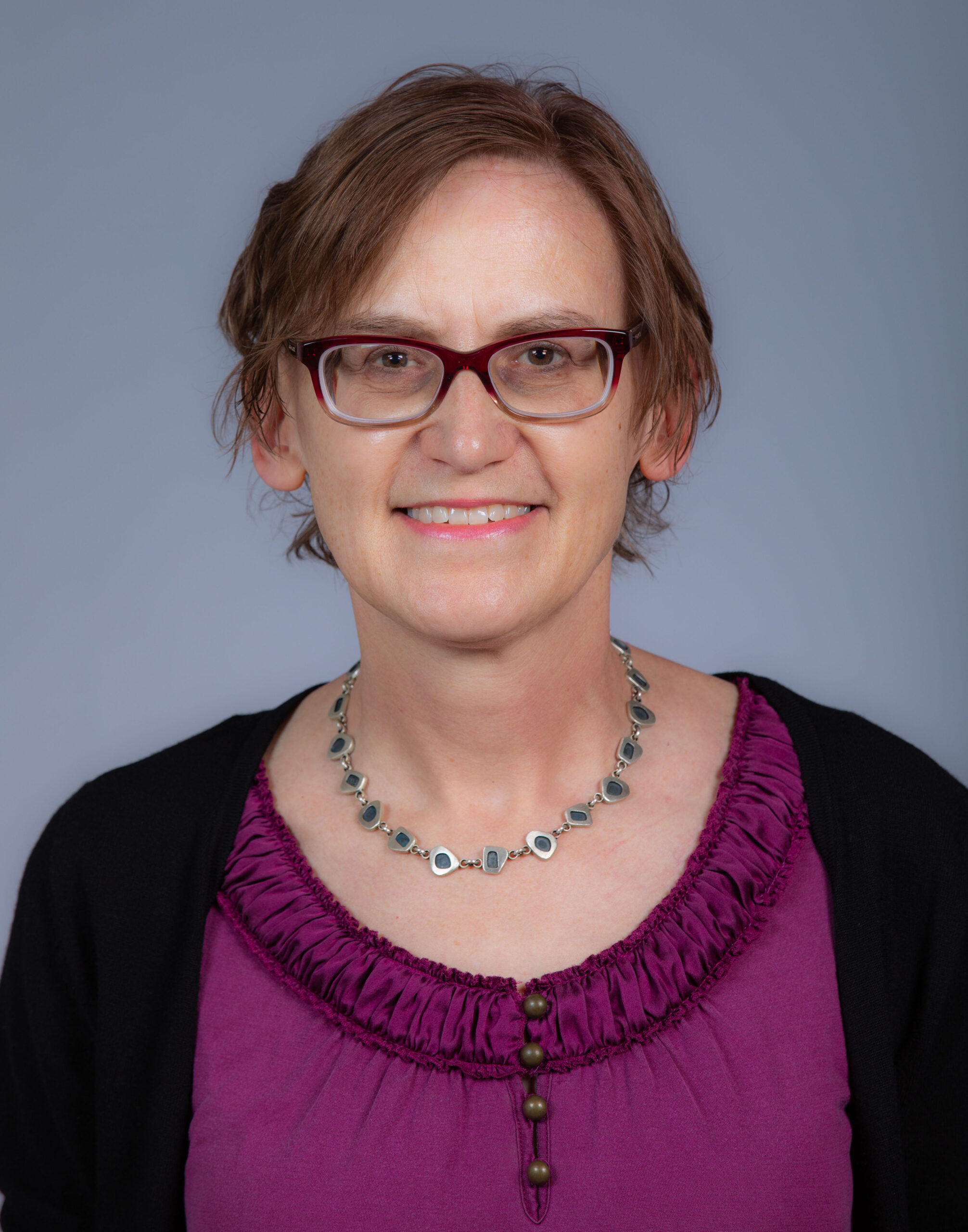
Dr. Diane Bassham
Diane Bassham, Distinguished Professor of Genetics, Development and Cell Biology at Iowa State University, received her B.Sc. in Biochemistry from the University of Birmingham and Ph.D. in Biological Sciences from the University of Warwick. After completing a post-doctoral appointment in the MSU-DOE Plant Research Laboratory at Michigan State University, she joined the faculty at Iowa State University in 2001. In 2013, Prof. Bassham was chosen as the first Walter E. and Helen Parke Loomis Professor of Plant Physiology. Her research focuses on trafficking of macromolecules to the plant vacuole in response to environmental signals. A major project is analysis of the mechanism and regulation of autophagy, a vacuolar degradation pathway, in response to abiotic stress. Autophagy is required for the tolerance of multiple stress conditions, and therefore is a promising target for generation of stress-resistant plant varieties.
Corteva speaker

Dr. Wendy Srnic
Wendy leads the Biotechnology organization for Corteva Agriscience. In this role, she is responsible for the discovery and development of Corteva’s Biotechnology and Gene-edited product pipeline, global genotyping and genomics to accelerate breeding, and novel enabling technologies. She and her team lead the Biotechnology strategy, execution, science, capability development, scientists, laureates, and facilities including laboratories, greenhouse and controlled environments. Wendy earned her B.S. degree in Crop and Soil Science at Michigan State University, an M.S. degree in Weed Science from Virginia Tech, and her Ph.D. in Crop Science from North Carolina State University. She spent the first 7 years of her career in Europe (United Kingdom and Italy) before returning to the US. Wendy has 2 granted US patents and 24 external publications. She serves on the Board of Trustees for Grand View University in Des Moines, Iowa, and the Board of Directors for the Indiana Biosciences Research Institute. Wendy developed a passion for agricultural research growing up on her family’s farm in Michigan. She enjoys gardening, volunteering, running, traveling, and being with her four children and husband.
Student speakers
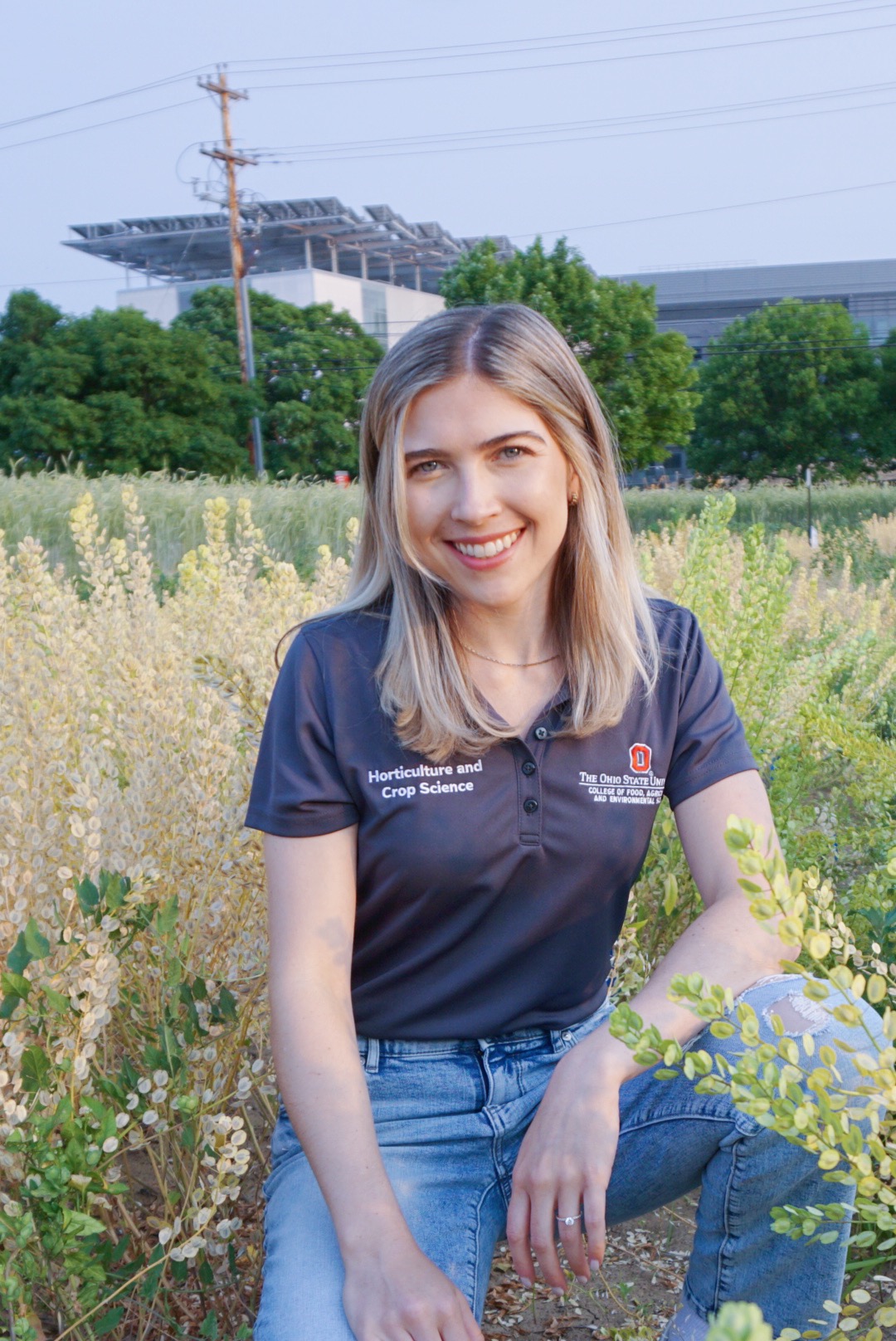
Rachel Combs-Giroir
Rachel Combs-Giroir is a PhD candidate at The Ohio State University in the Translational Plant Sciences graduate program under the advisement of Dr. Andrea Gschwend. Prior to OSU, she received her B.S. in Biology from the University of Missouri. Her PhD research is focused on the molecular mechanisms underlying flooding tolerance in the biofuel cover crop, pennycress (Thlaspi arvense). Pennycress is being optimized for off-season integration into corn and soybean rotations across the Midwest, with the potential to produce up to 1 billion liters of seed oil annually by 2030. Rachel’s work involves characterizing core lines and natural accessions of pennycress under waterlogging to identify variation in morphological and transcriptomic responses to spring flooding. She anticipates graduating next spring and is looking for a career in industry related to genomics, breeding, and computational biology.
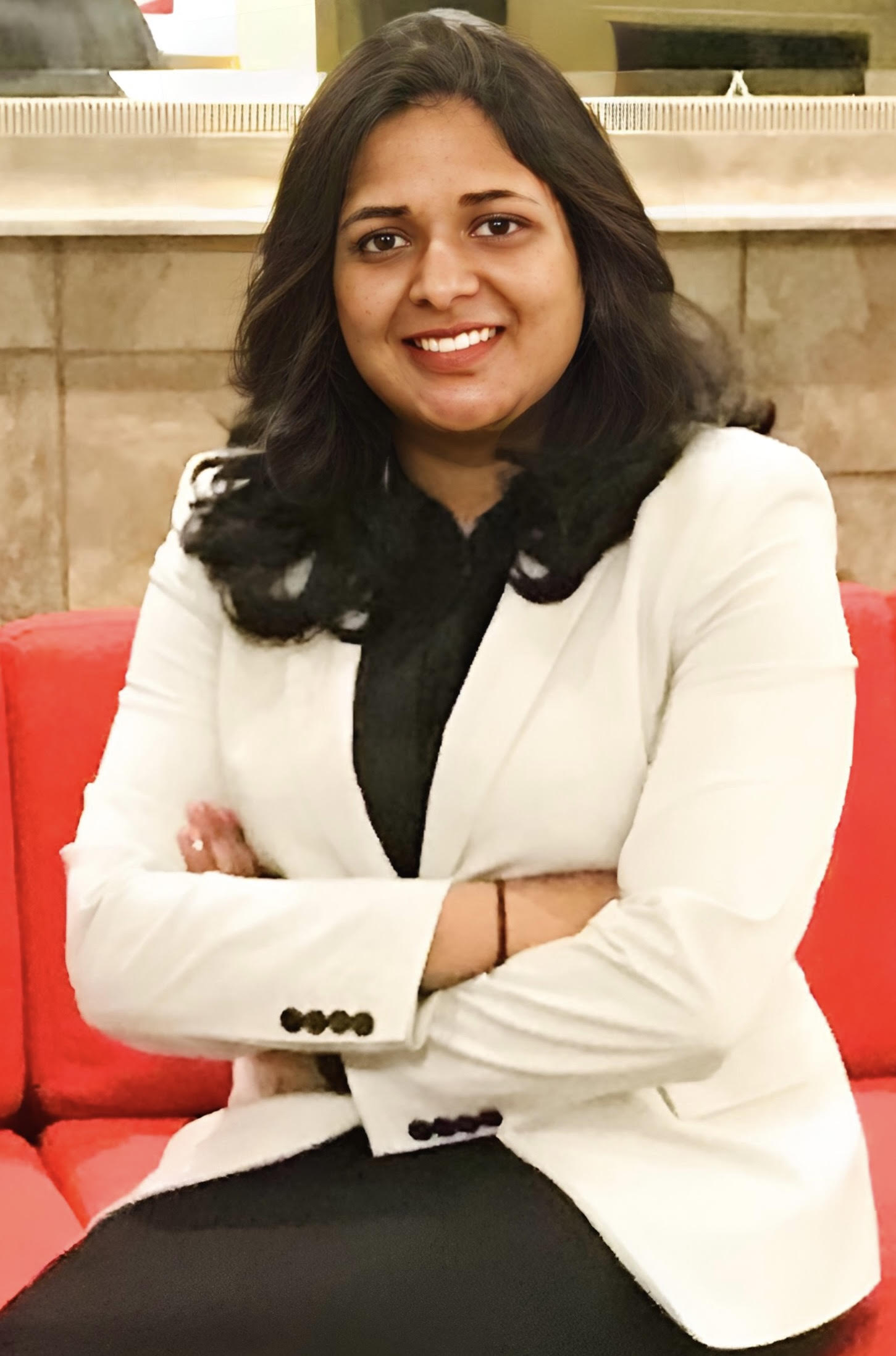
Dharani Suresh Babu
Dharani Suresh Babu, a Ph.D. student, specializes in the intersection of Horticulture and Computer Science. She is affiliated with the USDA's Vegetable Crops Research Unit and the University of Wisconsin-Madison, working under the esteemed guidance of Dr. Jyostna Devi Mura and Dr. Amaya Atucha. She also serves as the International Reach Ambassador at her university and is the Vice Chair in the Association of Horticulturists of the Indian Subcontinent for the American Society for Horticultural Science. Hailing from India, Dharani obtained her Bachelor's degree in Agricultural Information Technology from Tamil Nadu Agricultural University. She then advanced her studies with a Master's in Environmental and Conservation Science from North Dakota State University. She has an impressive track record, having worked with the International Crops Research Institute for the Semi-Arid Tropics, Blue River Technology, and John Deere. A fervent advocate for the fusion of agriculture and information technology, she is driven by a vision to transform the agricultural sector through innovative tech solutions. Presently, her research is centered on advancing the cranberry industry, with initiatives including the development of a Raspberry Pi camera system, AI-driven models, and a specialized web application—all geared towards enhancing cranberry farm yields and profitability. As Dharani prepares to grace the stage as a student speaker, she wishes to express her profound gratitude to the University of Illinois Urbana-Champaign Plant Sciences Symposium. In her words, "Receiving a full travel grant and being invited to share my insights among eminent scientists, researchers, and professors is truly an honor. Thank you for recognizing my passion and dedication."